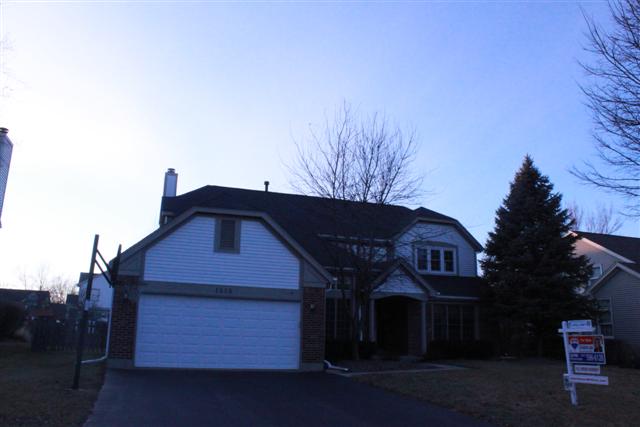Social Networking can do many good things for a person, but for one woman, it provided her a home.
AnnMarie Walsh spent many years of her life working as a pharmacist in Arlington Heights.
However, after divorce complications and job layoffs, Walsh was forced to give up her apartment. With nowhere else to go Walsh slept in her car, until that was gone too. Eventually Walsh became homeless.
“I had lost everything,” Walsh said. “Everything I owned I carried in my backpack which weighed about 50 to 70 pounds.”
Walsh packed up anything she still owned and began to spend her nights in the back alley behind ‘Runners High N’ Tri’ sports store.
During the winter, Walsh oftentimes spent her day in the library to get away from the brutal storms and temperatures. There, Walsh spent a lot of time exploring the internet, searching for ways to find an end to her homelessness.
“After a while I had heard about Twitter and wanted to see what everyone was talking about,” Walsh said. “It turns out Twitter changed my life forever.”
Walsh used the social networking site as an opportunity to help the homeless community by telling her story while living on the streets of Arlington Heights.
“Everyday I would go to the library and update my Twitter to share my thoughts on what happened that day,” Walsh said. “After a while, the page grew and grew and now I roughly have over 6,000 followers.”
The users following Walsh were touched by her stories and experiences, Walsh said. Many started to reach out and help Walsh along the way. Walsh’s followers began to donate clothing, money, cell phones, toiletries, and laptops.
“All of my followers wanted to help me whenever I was in need of basic things people oftentimes take advantage of,” Walsh said. “Many of them would attach notes to their donations encouraging me to keep telling my story. People would send money to my cell phone data plan so I could keep a phone and keep tweeting on days when I couldn’t make it to the library.”
Walsh’s Twitter page caught the attention of Deborah’s Place, an organization that helps the homeless by providing them with a permanent shelter to live in.
“A man I met at a shop asked me a bunch of weird questions via Twitter,” Walsh said. “It turns out he was checking if I was eligible for a home. It was the greatest gift I could ask for.”
Walsh now holds permanent residency in Deborah’s Place and continues to educate society of the truth behind homelessness.
“I’m going to keep on talking to anyone that will listen to me,” Walsh said. “My goal is for people not to see a homeless man and think he is just a ‘bum.’ Everyone has a personal story but no one takes the time to listen, and that’s what I want to change.”
A student’s story
by Chris Radecki, Joe Koncel
Lake County counted 474 homeless people as of its last census in 2010. Of these 33 percent were under 17 years old.
Will Rychlik, senior, came close to being part of that statistic when his house was foreclosed on two years ago.
The Rychlik family was faced with a series of financial hardships, all leading to the foreclosure of their home. The family moved into an apartment complex and Rychlik’s sister moved back home from Connecticut to help support the family.
“[Being foreclosed on] made me see hardship and morality. You see people living on the streets, people who have stolen things, and you get a better understanding of their situation once you know what they go through,” Rychlik said.
Although his family’s financial situation has been hard on him and his family, Rychlik said it has made him into the stronger person he is today.
“It has made me a lot stronger, getting through it. I have more respect for myself,” Rychlik said. “Money is less important to me, [the foreclosure] made me value my family over possessions.”
While Rychlik is currently living in an apartment, others who experience foreclosure are less fortunate.
When asked, homeless shelters cited an average of 10 percent of their clients as having become homeless through foreclosure, according to a 2009 study by various housing advocates.
The current economic recession is expected to cause 1.5 million more Americans to become homeless over the next two years, according to the National Alliance to End Homelessness (NAEH).

